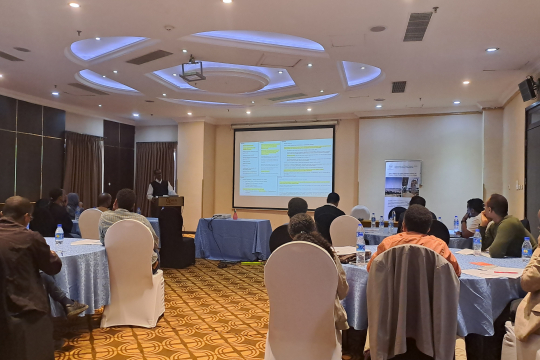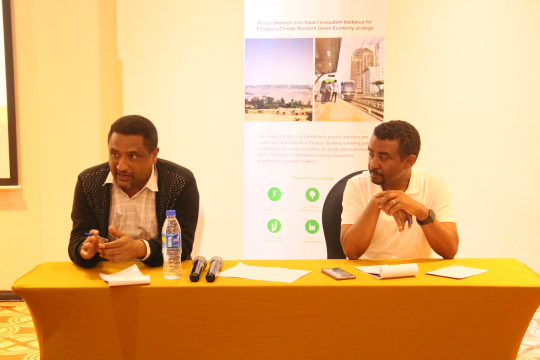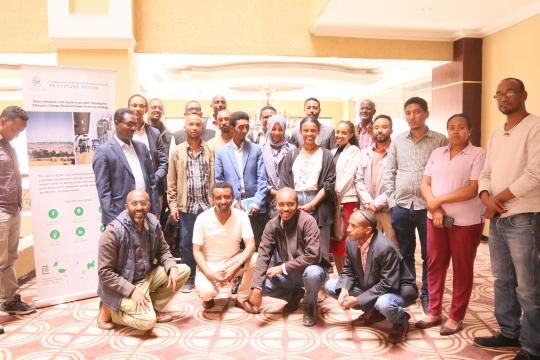EfD Ethiopia conducted a second dialogue workshop on sustainable energy transition, focusing on biomass dependency on Friday 2 June 2023. The objective was to narrow down the number of policy options and specify which topics within biomass dependency to focus on for the transformation initiative process for 2023. The workshop was part of the Inclusive Green Economy in Practice Program (IGE).
The participants of the workshop included senior experts from ministries and institutes who gathered to discuss issues related to biomass dependency in Ethiopia. The participants represented stakeholders including; the Ministry of Finance, Ministry of Water and Energy, Ministry of Industry, Ministry of Urban Development and Infrastructure, Ministry of Planning and Development, Ministry of Transport and Logistics, Addis Ababa Institute of Technology, Horn of Africa Regional Environment Center/Addis Ababa University (HoAREC), Ethiopia Forest Development, Senior Research Fellows (SRF) from Policy Studies Institute, and the newly recruited IGE fellows for 2023 (senior civil servants).
The workshop kicked off with Hailemariam Teklewold, leader of the IGE program in Ethiopia, highlighting the main objective of the program and explaining how biomass dependency was selected as a prioritized topic for 2023. He further explained that biomass dependency is one major issue across the six African countries that are participating in the program.
EfD Researcher Abebe Damte presented research-based evidence on biomass fuel use for cooking in Ethiopia. In the presentation, he talked about the current household energy consumption, energy poverty, the energy transition, the energy ladder, fuel choices in urban Ethiopia, and the benefits and impacts of the adoption of clean cookstoves.
The final session of the workshop was a plenary discussion in which experts actively participated and provided their inputs and thoughts, moderated by Dawit Woubishet, EfD Ethiopia. The plenary discussion was mainly focused on; what type of economic policy instruments can be developed to reduce dependency on household biomass fuel use, what types of alternative sources of energy can be used in the country, how we get people to adopt alternative technologies, how can we consider and integrate social inclusion (gender, poverty, marginalized groups, etc.) in the energy mix? and how do we align with on-going national policies processes linked to biomass.
The workshop was attended by more than thirty participants.


